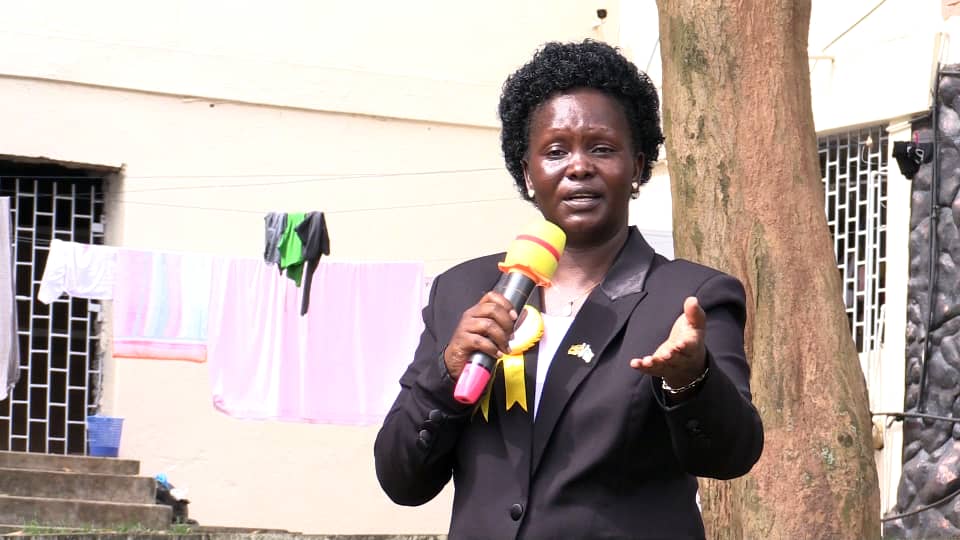The head of the National Patriotic Secretariat, Hellen Ssekku, has warned school heads and Resident District Commissioners against political coercion and misuse of authority as the country heads into the 2026 general elections.
The head of the National Patriotic Secretariat, Hellen Ssekku, has issued a stern warning to school administrators, cautioning them against coercing students into attending rallies and political activities linked to the ruling National Resistance Movement ahead of the 2026 elections.
Her remarks come amid rising concern over political influence in schools and the potential abuse of power during the campaign season.
Addressing school administrators, Ssekku said schools must remain neutral spaces and that students should not be dragged into partisan activities under any circumstances.
She warned that compelling students to attend NRM rallies or any political events could attract the attention of the Electoral Commission and lead to sanctions.
“I am warning all school heads, without exception, to desist from compelling students to participate in NRM rallies or any political activities,” Ssekku said.
“Schools are meant to be places of learning, not political battlegrounds. We must protect our children from being exploited for political gain. Any school found violating this directive will face the consequences of the law.”
The warning touches on a long-running debate in Ugandan politics, where the ruling party has often been accused of using influence in education institutions to consolidate support.
Teachers and administrators have previously faced allegations of being coerced into mobilising students for political events.
Ssekku extended her caution to Resident District Commissioners, saying many had overstepped their roles by blocking opposition activities.
She accused some RDCs of undermining democratic freedoms through intimidation and unnecessary interference.
“RDCs must understand that their role is to ensure peace and security, not to meddle in political affairs,” she said.
“They are not the Electoral Commission, and they do not have the authority to dictate where political parties can hold rallies. Any RDC abusing their mandate will face disciplinary action.”

Her remarks come at a time when the conduct of RDCs in the run-up to the 2026 elections is under intense scrutiny.
Critics argue that RDCs, appointed by the President, often act as political gatekeepers for the NRM, restricting opposition activities and influencing local governance.
Ssekku also urged teachers and administrators accused of partisan conduct to remain professionally neutral.
She said educators have a responsibility to model fairness and impartiality for students and should not use their positions to promote political agendas.
The “Patriotism Launch” — a new initiative promoting national unity, civic responsibility, and anti-corruption values — also featured prominently at the meeting.
The campaign aims to strengthen national identity and encourage citizen participation in democratic processes.
While supporters see it as a unifying project, sceptics argue its timing could serve political interests ahead of the 2026 vote.
Ssekku dismissed these concerns, insisting the initiative is non-partisan. She urged Ugandans to embrace the campaign for the country’s long-term good.
Her warnings carried particular emphasis for the Ankole region, where President Museveni is expected this week.
She cautioned school heads there against involving students in any political activities surrounding the visit.
“Taking students to Museveni’s events is against the law,” she warned. “It shows our party’s lack of confidence. I urge all school heads to prevent any student participation in these activities during the president’s visit.”
The meeting further revealed concerns about the integrity and neutrality of officials overseeing the electoral environment.
Ssekku urged President Museveni to avoid appointing individuals who openly criticise government into sensitive district roles such as RDCs, arguing that such appointments could undermine trust between communities and the state.
She also highlighted appreciation from participants who acknowledged challenges but expressed gratitude for being given a fully dedicated office to support their patriotic programs.
The gathering’s wider goal was to strengthen coordination among actors supporting the National Patriotic Secretariat and to ensure that political activities, especially ahead of the 2026 elections, do not compromise students’ rights or the integrity of key government institutions.


